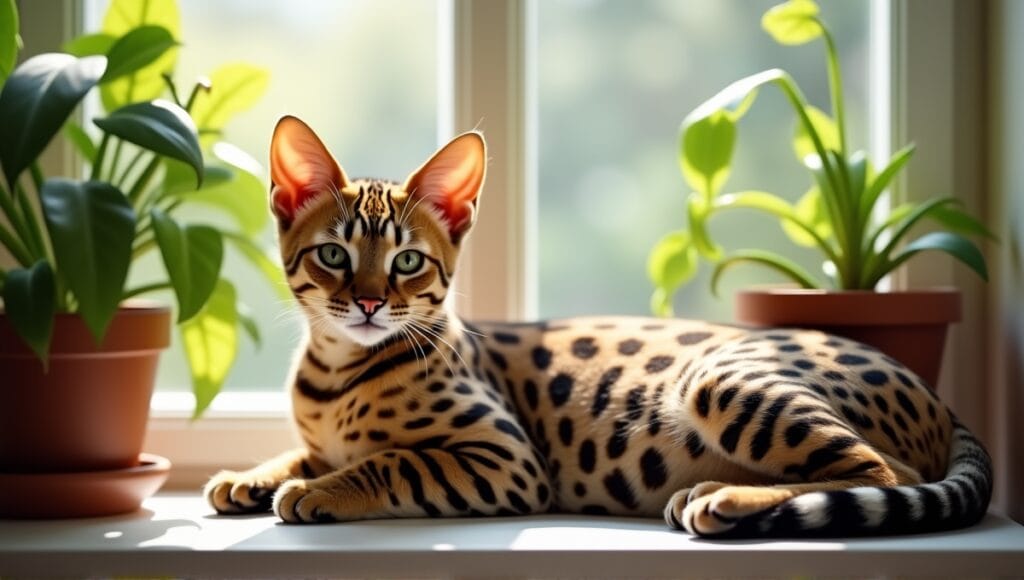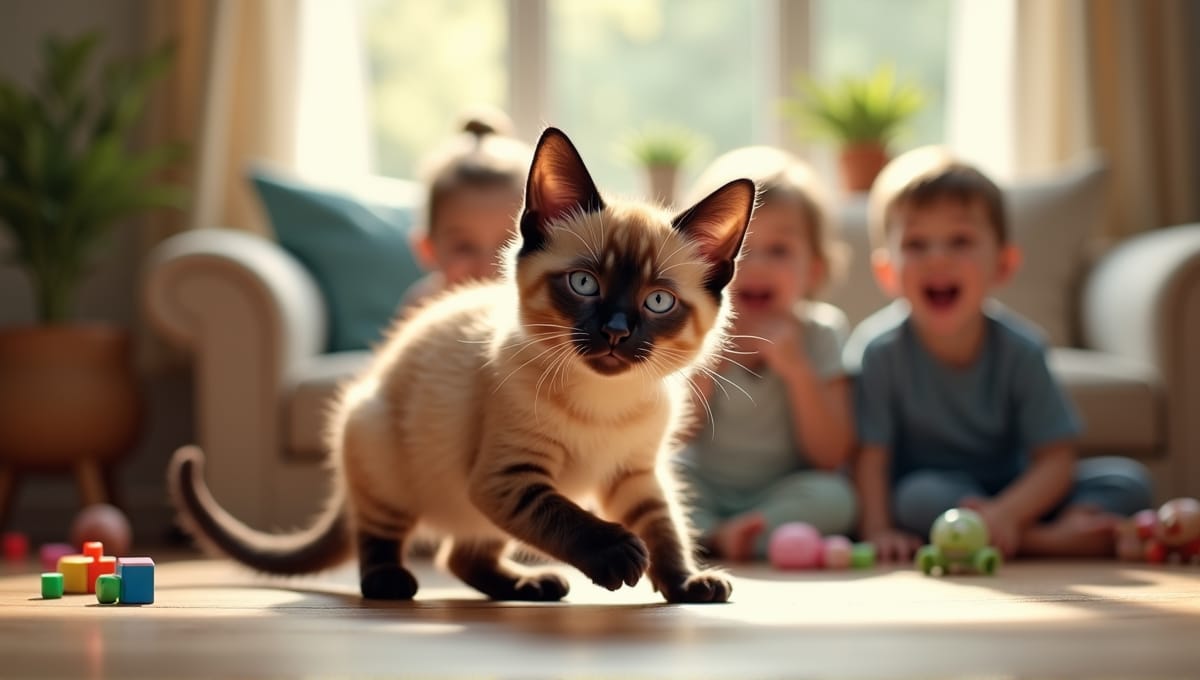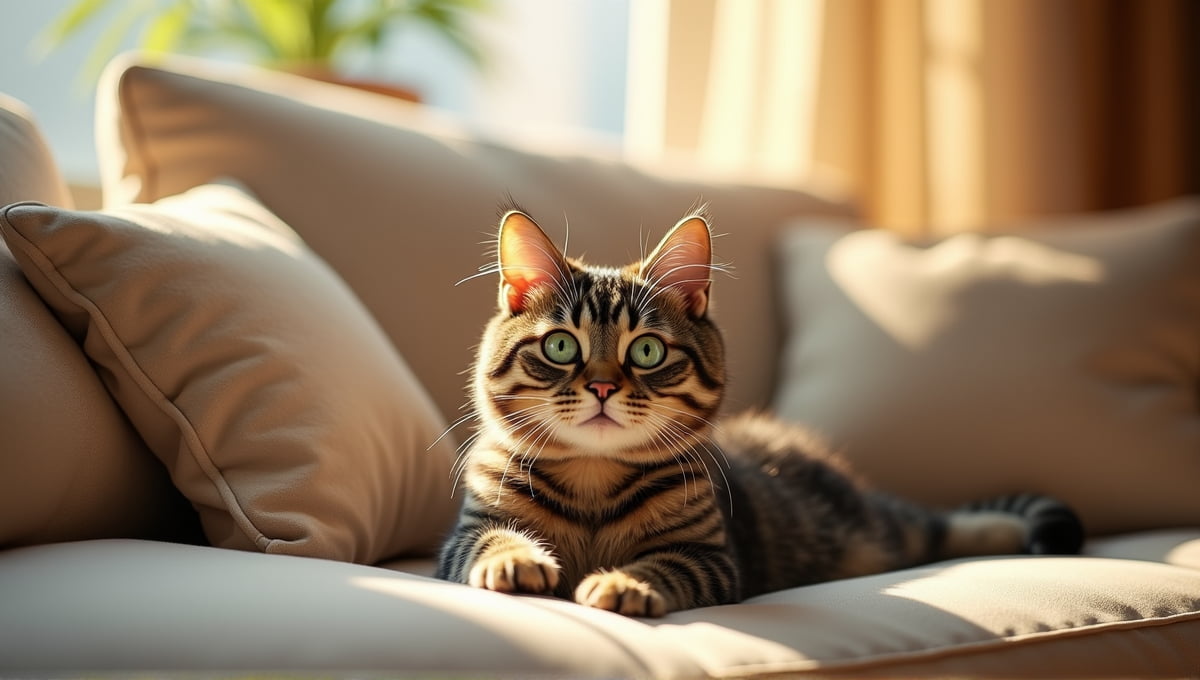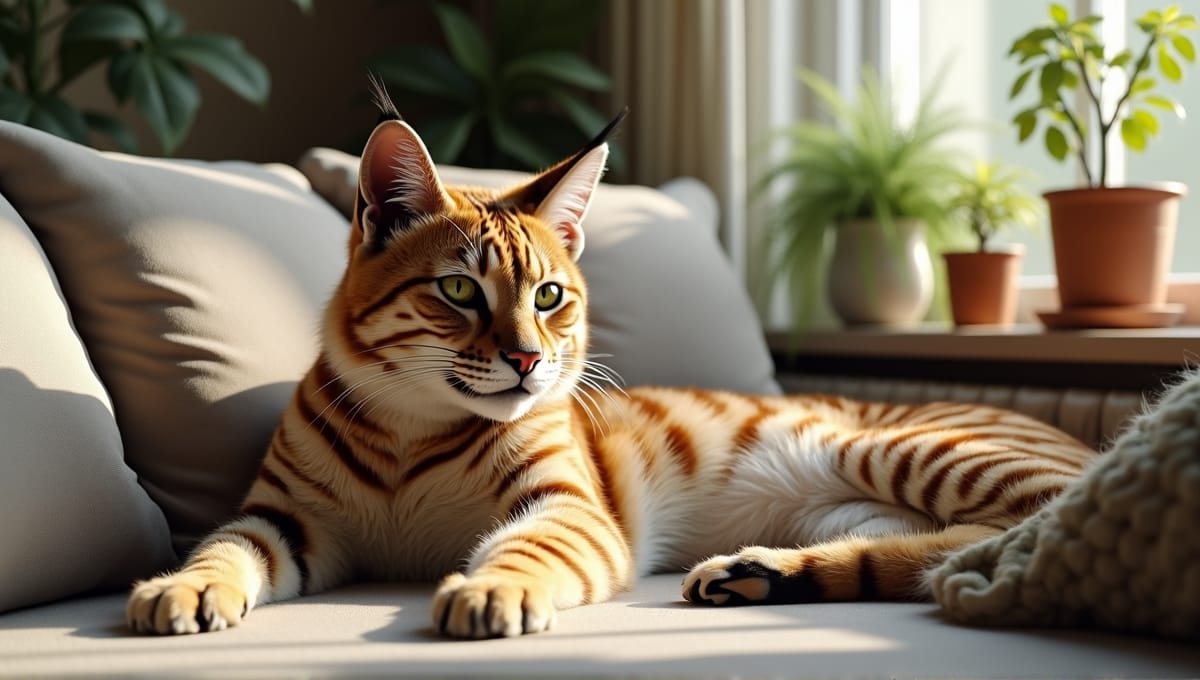I’ve studied various unique breeds as a cat expert, and Savannah cats are a breed like no other. These rare cats are a cross between a wild African serval and a domestic cat. The result is a beautiful cat with unique spots and a very wild personality. But is a Savannah cat the right fit for your home? Let’s delve into the world of Savannah cats and help you determine if this breed is a good fit for you.
What is a Savannah Cat?
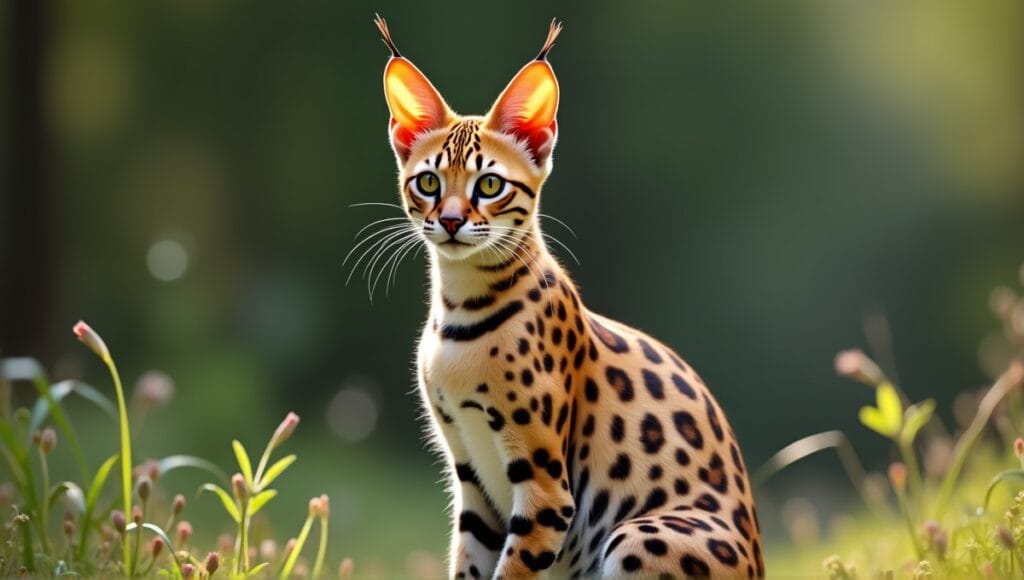
Savannah cats are a special breed that has captured the hearts of cat lovers around the world. These beautiful cats are the result of breeding a domestic cat with an African Serval, and I’ve been intrigued by their development ever since the first successful crossbreeding in the 1980s. If you’re interested in other exotic cat breeds, there are many fascinating options to explore.
The breed’s history is fascinating:
- 1986: First recorded Savannah cat born
- 2001: Breed was accepted for registration with TICA
- 2012: Savannahs were granted championship status
So, TICA accepting the Savannah cat breed was a significant moment for Savannah enthusiasts, as it finally provided official recognition after years of dedicated breeding efforts.
Savannah cats look very different from your average house cat. Their ears are exceptionally tall with pointed tips, and they have hooded eyes that give them an exotic look. They also have very long legs and a lean, muscular physique, further contributing to their wild appearance. Additionally, these cats are often heavier and taller compared to the average domestic cat breed.
Their coats are covered in spots, which is a visual reminder of their Serval ancestors. While the specific patterns can vary, most coats have bold spots or stripes on a light background. Some Savannah cats also have a solid or marble pattern.
Physical Characteristics of Savannah Cats
Savannah cats are large cats. Males are significantly larger than females. A male adult can weigh anywhere from 15-20 pounds with females slightly smaller at 12-16 pounds.
Their coats are a true work of art. You’ll find them in a range of colors, including:
- Brown spotted tabby
- Silver spotted tabby
- Black smoke
- Black
Savannah cat faces are truly one of a kind. They have small, rounded ears that sit towards the top of their heads. Their eyes are slightly hooded, which gives them an intense stare. They also have a slender, long neck that leads down to a very lean and athletically built body.
These cats are designed for activity:
- Muscular legs
- Long, slender bodies
- Sturdy paws
- Thick tails, which aid in balance
And they never cease to impress in terms of agility. I’ve seen Savannah cats effortlessly jump to unbelievable heights.
Savannah Cat Generations Explained
Understanding Savannah generations is important. The ‘F’ refers to the number of generations removed from the Serval ancestor.
Here’s a brief overview:
| Generation | Serval Percentage |
|---|---|
| F1 | 50-75% |
| F2 | 25-37.5% |
| F3 | 12.5-18.75% |
| F4 | 6.25-9.375% |
| F5-F8 | <6.25% |
The early generations (F1-F3) tend to be larger and display more distinct wild characteristics. They also require more energy and may be more difficult to manage.
Conversely, the later generations (F4 and above) are significantly smaller and exhibit more domestic behaviors. They are easier to introduce to a household.
Fertility is often a problem with early generations. For example, F1 and F2 males are typically infertile. Meanwhile, females from any generation can reproduce, but they may have lower litter sizes in early generations. If you’re interested in learning more about cat breeding, it’s important to understand the complexities involved, especially with hybrid breeds like Savannahs.
Savannah Cat Temperament and Personality
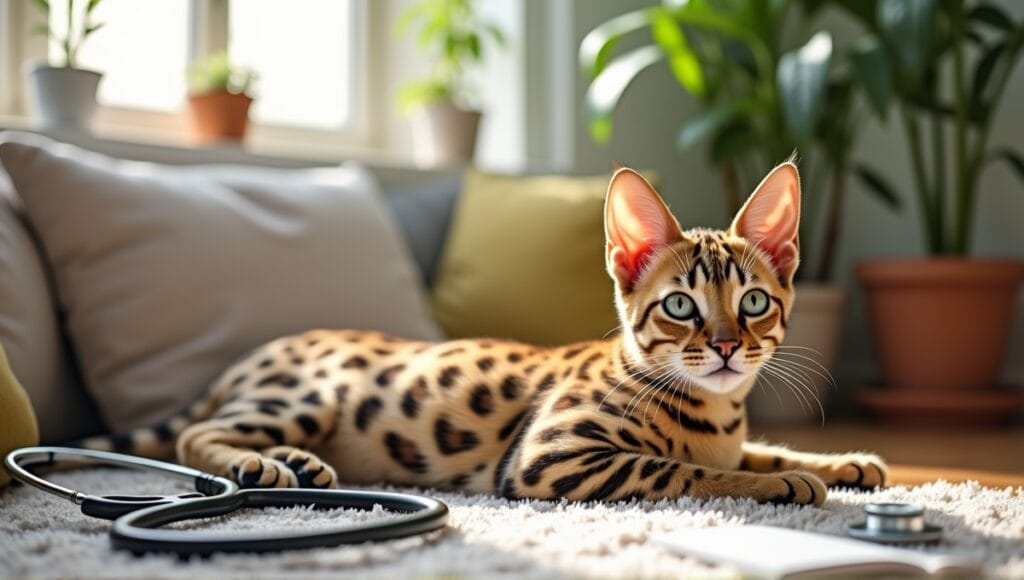
Savannah cats are very active. They need a lot of playtime and exercise to keep them happy. I’ve seen Savannah cats run through homes at top speeds like little furry missiles.
They are more social than many people think. Savannah cats often form strong attachments to their humans. They can be loving and enjoy interactive play, though they may be cautious around strangers.
These cats are extremely intelligent. You can teach them tricks and some can even be trained to walk on a leash. Their intelligence also means you need to offer them mental stimulation to avoid boredom.
One of the most famous things about the Savannah cat is its unique vocalizations. They chirp and meow and even make sounds that are said to be similar to their Serval ancestors. Some owners say it’s almost like having a conversation with their cat.
Legal Considerations for Owning a Savannah Cat
Savannah cat laws are very different depending on where you live. Therefore, it’s important to check your local laws before getting a Savannah cat.
Here are a few things to keep in mind:
- Many countries don’t allow F1-F4 generations.
- Some U.S. states don’t allow early generations.
- Certain cities or counties have their own restrictions.
You may need to obtain:
- Permits.
- Special licenses.
- Proof of generation.
Always consult local authorities. Rules change, and it’s up to you to verify legality.
Savannah Cat Care Requirements
Caring for a Savannah cat requires commitment. They should eat a diet high in protein that resembles what they would eat in the wild. You can feed them 2-3 times per day with high quality cat food.
Exercise is a must for these active cats. They require:
- Daily playtime
- Climbing opportunities
- Interactive toys
- Puzzle feeders for mental challenges
Grooming is fairly easy. Their short hair needs a weekly brush to remove loose hair. Trim their nails as needed, and check their ears for cleanliness.
Environmental enrichment is important. You can provide:
- Tall cat trees
- Window perches
- Hiding places
- Scratching posts
A rich environment will keep Savannahs satisfied and prevent destructive behavior.
Health Considerations for Savannah Cats
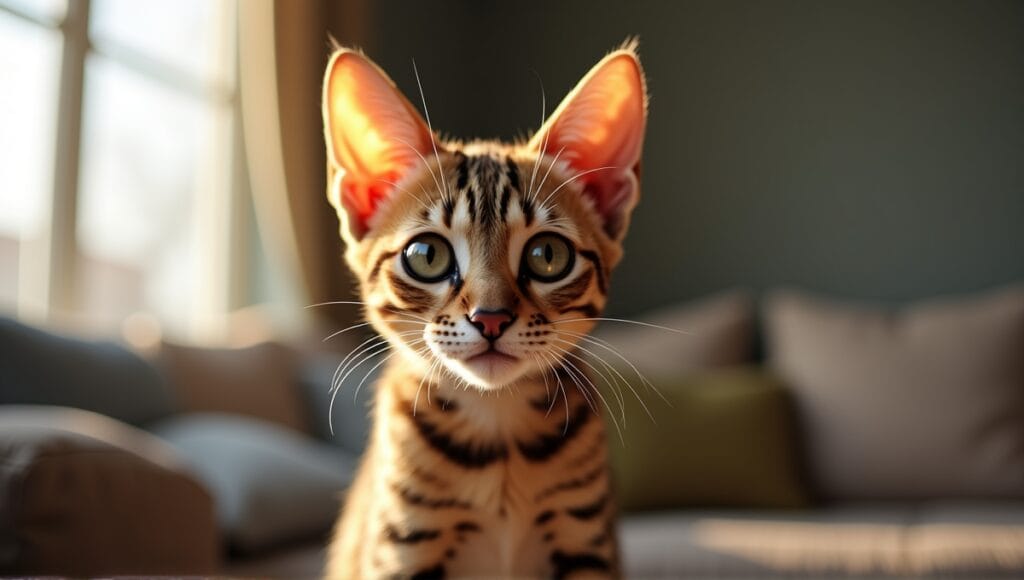
Savannah cats are generally healthy cats and with proper care, they can live 12 to 20 years. Their hybrid vigor often helps contribute to their long lifespan. This is similar to mixed breed cats, which often benefit from genetic diversity.
They do not have many breed-specific health problems, but they may be more at risk for:
Hypertrophic Cardiomyopathy
Progressive Retinal Atrophy
Savannah cats do require specialized veterinary care as not all veterinarians are familiar with exotic hybrid breeds. Therefore, it’s important to find a veterinarian who knows about Savannah cats before you purchase one.
Another interesting fact about Savannah cats is that they may have a different reaction to certain medications compared to domestic cats. Thus, always tell your vet your cat’s breed.
Regular check-ups are also important, and I recommend taking your cat to the vet at least twice a year to monitor the cat’s health. Early prevention can help ensure your exotic cat lives a long and healthy life.
Final Thoughts
The savannah cat breed are amazing. They’re an intriguing mix of wild and domestic beauty, making them fascinating pets. However, they require special legal considerations and adequate space to be happy. They’re not the right fit for everyone, and they require dedicated owners who are willing to satisfy all of their needs. If you’re willing to put in the effort, a Savannah cat could be an excellent fit for you. The experience of living with these majestic cats is truly amazing.


